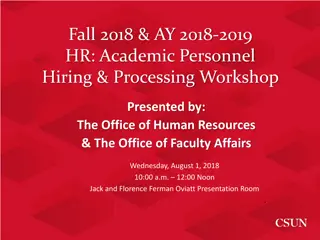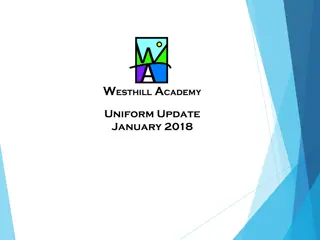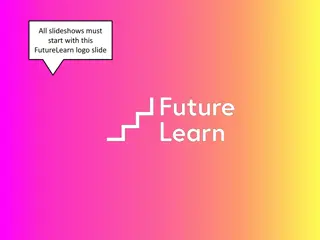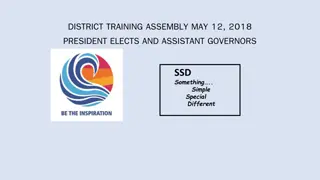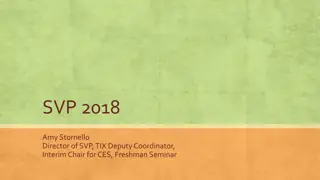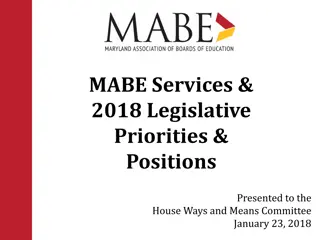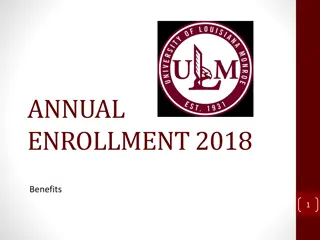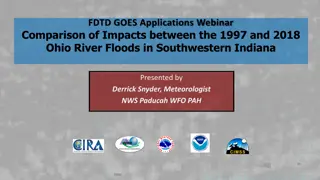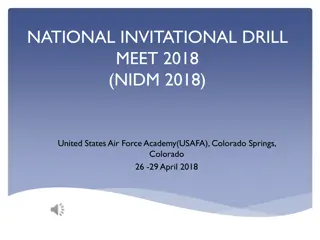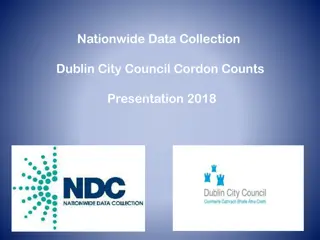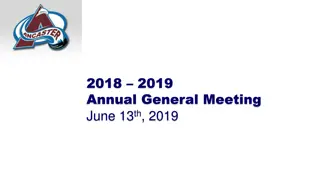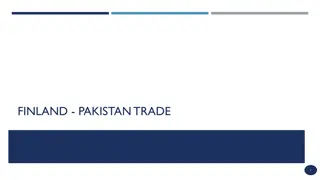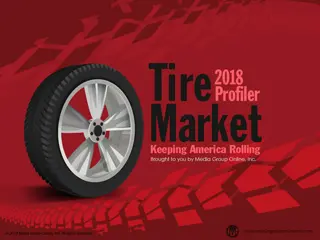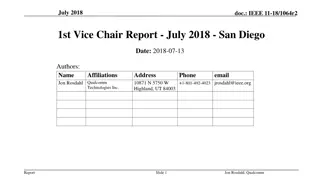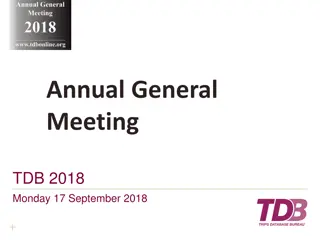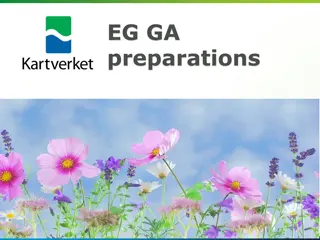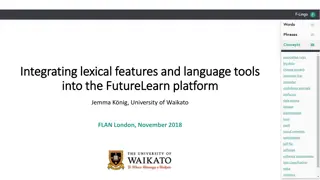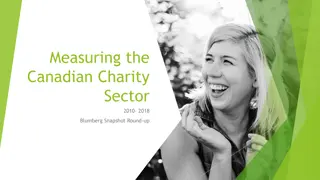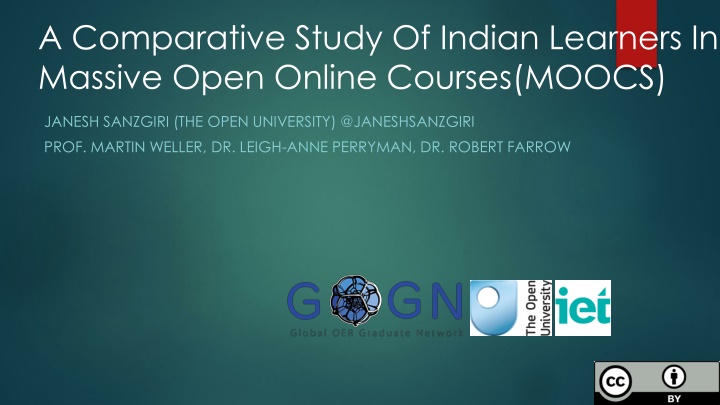
Indian Learners in MOOCs: A Comparative Study by Janesh Sanzgiri
Explore a comparative study of Indian learners in Massive Open Online Courses (MOOCs) conducted by Janesh Sanzgiri from The Open University. The research delves into demographics, motivations, experiences, and the role of MOOCs in the Indian educational context, with insights from NPTEL and FutureLearn platforms.
Download Presentation

Please find below an Image/Link to download the presentation.
The content on the website is provided AS IS for your information and personal use only. It may not be sold, licensed, or shared on other websites without obtaining consent from the author. If you encounter any issues during the download, it is possible that the publisher has removed the file from their server.
You are allowed to download the files provided on this website for personal or commercial use, subject to the condition that they are used lawfully. All files are the property of their respective owners.
The content on the website is provided AS IS for your information and personal use only. It may not be sold, licensed, or shared on other websites without obtaining consent from the author.
E N D
Presentation Transcript
A Comparative Study Of Indian Learners In Massive Open Online Courses(MOOCS) JANESH SANZGIRI (THE OPEN UNIVERSITY) @JANESHSANZGIRI PROF. MARTIN WELLER, DR. LEIGH-ANNE PERRYMAN, DR. ROBERT FARROW
Presentation Outline Research Questions NPTEL Research Design Survey Findings - Responses Demographics, Motivations and Challenges Findings Experiences of FutureLearners
Research Questions What are the demographics, motivations and experiences of Indian learners in MOOCs? What are the differences in demographics, motivations and experiences of Indian learners in Western and Indian MOOC platforms? What role are MOOCs currently playing, and what role can they potentially play, in the Indian context?
NPTEL National Programme on Technology Enhanced Learning Began as an OER repository, focusing on Science and Engineering. Total of 922 Courses from Indian Institutes of Technology (IITs) available. Created as a response to poor quality of Engineering and Science education in India. NPTEL MOOCs Currently offering 225 Courses, partly with the SWAYAM platform. Indian Government initiative to allow up to 20% of degree credits to be earned through MOOCs.
Research Design THREE STAGE MIXED-METHODS STUDY Stage 1: Pilot interviews with eight participants Stage 2: Survey on learner demographics, motivations, and experiences (n=2375) Stage 3: Semi-structured interviews with Indian learners on global MOOC platform (FutureLearn) and Indian MOOC platform (NPTEL) (n=30)
SURVEY FINDINGS - RESPONSES Site NPTEL FutureLearn Number of Responses 2009 364 Total 2375
DEMOGRAPHICS - GENDER NPTEL (in %) FutureLearn (in %) Female Female Male Male 0 20 40 60 80 100 0 20 40 60 80 100 NPTEL (in %) FutureLearn (in %)
DEMOGRAPHICS - AGE NPTEL (% Responses) FutureLearn (% Responses) <18 <18 18-25 18-25 26-35 26-35 36-45 36-45 46-55 46-55 56-65 56-65 >65 >65 0 20 40 60 80 100 0 5 10 15 20 25 30 % Responses FutureLearn (% Responses)
DEMOGRAPHICS EDUCATION LEVEL NPTEL(% Responses) FutureLearn(% Responses) None None Secondary School Secondary School High School Certificate High School Certificate College/Vocational Diploma College/Vocational Diploma Under-Graduate Degree Under-Graduate Degree Post-Graduate Degree Post-Graduate Degree PhD PhD 0 10 20 30 40 50 0 10 20 30 40 50 NPTEL(% Responses) FutureLearn(% Responses)
DEMOGRAPHICS EMPLOYMENT LEVELs NPTEL(% Responses) FutureLearn(% Responses) Unemployed Unemployed Student Student Part-Time Employed Part-Time Employed Full-Time Employed Full-Time Employed Self-Employed Self-Employed Retired Retired 0 20 40 60 80 0 10 20 30 40 NPTEL(% Responses) FutureLearn(% Responses)
MOTIVATION Two Scales of Extrinsic Motivation and Leisure Learning The Mann-Whitney U-Test was used to compare the means of the two scales. NPTEL users statistically significantly more likely to take MOOCs for Extrinsic Motivators (Professional Development, Improving Job/Education Prospects etc.) (U=246496.5, p=0.05) while FutureLearn users were statistically significantly more likely to take MOOCs for leisure purposes (U=207139.5, p=0.05).
Challenges Two Scales of Challenges, broadly defined as Technical Challenges and Course Difficulty related Challenges . Mann-Whitney U-Test was used to compare the non-parametric means of the scales generated. NPTEL participants were statistically significantly more likely to face Technical challenges (U=193748.500, p=0.05) and find the courses tougher (U=197454, p=0.05) than FutureLearn participants.
Experiences of FutureLearners FutureLearn as an avenue to explore passions otherwise not possible: Because of being a law student I am forced to study law only, and this[FutureLearn] gives me a greater freedom to catch up on all those subjects which I do want to study but I am unable to, such as history, geography, and geology, which do interest me. Being in law university I am bound to study law, but I did not choose law as my first option. It was not ever my first option, It was because of my family that I choose law. So having an interest towards history and geology was my first idea and using online courses I'm trying to build up on those interests and that is one of the most crucial part that online courses serve to me, and in a way they helped me with my law career also. (Participant 3, Male, 20)
Experiences of FutureLearners FutureLearn as a platform to promote critical thinking: We [Indians] are not open to many criticisms. Actually our education system has been designed such that we do not criticize much. We tend to memorise things, we tend to get the information and just write the information in a weak sense[sic]. What FutureLearn and especially the comment section allows us to do - We learn how to criticize, how to analyze things. We do not have an opportunity to do this in the college stage because in Indian education system is such that it does not allow you to analyze much, it allows you to only get the information from the curriculum and write whatever you have learned, ignoring everything else. So it is a hindrance and that hindrance clearly isn't present in the online courses. (Participant 15, Male, 44)
Experiences of FutureLearners Using FutureLearn for immediate practical knowledge: I always enjoyed learning, and since we have settled down in the senior citizens home now I don't have to cook. So I have all the time in the world, which I utilized in trying to learn all that I wish to learn especially everything regarding health ... since I'm a cancer survivor with other complications and my husband is a diabetic and he has heart problems, so just to learn more about health and since I have that time that is my main motivation to learn. (Participant 20, Female, 62)
Experiences of FutureLearners FutureLearn has immediate recognition with cultural institutions like the British Council. FutureLearn is seen as offering different types of courses compared to Coursera or edX Many Indian learners face technical challenges. Often download content and study off-site. FutureLearn courses too expensive for Indian participants, compared to alternate offerings. FutureLearn material great for reference, but there s massive demand for content that maps to local curriculum
THANK YOU! A Comparative Study of Indian Learners in Massive Open Online Courses Janesh Sanzgiri Supervisors: Professor Martin Weller, Dr. Robert Farrow, Dr. Leigh-Anne Perryman Contact: janesh.sanzgiri@open.ac.uk Twitter: @janeshsanzgiri

